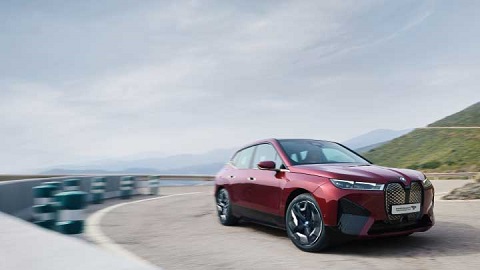Autumn Budget 2025: How Rising Taxes Could Affect Your Business and Vehicles
20th Nov 2025
As the UK Government gets set to reveal its Autumn Budget on 26, November, it’s expected we could see extensive changes to the UK tax system with Chancellor Rachel Reeves under pressure to address a fiscal gap estimated to exceed over £25 billion.
These changes could make Salary Sacrifice Car Schemes an even more attractive proposition for businesses and employees.
If reports are correct, we can expect a combination of impacts: tax rises and reduced reliefs as the Government looks to balance the books. For businesses, this could have a direct impact on fleet operating costs, as well as the attractiveness of employee car benefit schemes.
Key considerations from the Labour Government include tightening tax thresholds and a potential clampdown on how much salary can be sacrificed, though it’s important to note this applies to pension contributions only, not car salary sacrifice.
In this blog, we explore the potential Budget changes that could affect your business, your drivers, and your wider mobility strategy.
Potential Impacts on Fleets & Employee Benefits
It’s well known that fuel duty revenue will dwindle as more drivers make the switch to electric vehicles. Currently, fuel duty brings over £25 billion to the UK economy, every year.
With such a gap set to appear in the coming years, the Treasury is reportedly considering a pay-per-mile road pricing structure, where drivers could be charged based on distance travelled, vehicle weight and emissions.
There’s been no formal confirmation of this and it’s not clear in proactive how such a system would function in reality. It’s suggested electric vehicles could be the first group impacted, given the current exemption from fuel duty and the historically lower Vehicle Excise Duty (VED) rates.
The potential move would reshape the costs for electric fleets but it’s important to note that it’s not clear how in practice it would work and in truth would still work out dramatically cheaper than running an ICE alternative fleet operation.
Even with increased costs, the savings and benefits of going electric over ICE are still clear to see.
It’s timely to remind businesses of a policy change that was rubber stamped earlier this year with the expectation that all ECOS (Employee Car Ownership Schemes) will be become defunct by October 2026. We covered this in detail in our recent blog post here.
Why do employee car benefit salary sacrifice schemes continue to surge in popularity with businesses?
A salary sacrifice car benefit scheme remains one of the most tax-efficient ways for an employee to drive a car for less. It’s a high value benefit that delivers for both employer and employee, as a sticky benefit it delivers on ESG, value, simplicity, attractiveness and relatively low risk for all.
Even if the budget brings changes like a penny rise in income tax, frozen thresholds or tweaks to National Insurance, employee car benefit schemes through salary sacrifice will remain a tax efficient route to fund a car for many employees and businesses.
Changes to income tax or tax bands could see employee car benefit schemes become even better value with increased value benefits. A scenario where there’s a restriction on car salary sacrifice is the only one that could prevent it, and that is currently not on the agenda.
Drivers continue to benefit from:
- Low Benefit-in-Kind (BiK) EV rates, currently just 3% until April 2026, rising gradually 1% thereafter, to the current EV 5% BIK CAP.
- Income tax and National Insurance savings, reducing gross pay will result in lower Income tax and NI payments, offering a net monthly cost benefit..
- All-inclusive fixed monthly payments covering the car, the free home EV charger, insurance, servicing
,and maintenance, and even our Life Shield protection
For employers, the advantages remain clear: salary sacrifice schemes as an employee benefit can be effective, cost-neutral, promote environmental responsibility, and support employee retention in a competitive market with the ability to reduce National Insurance contributions.
By implementing or expanding your scheme now, you can take advantage of these benefits before any potential shifts in taxation policy.
What should Fleet and HR Leaders look out for in the Autumn Budget 2025?
With the Autumn budget due on 26, November, it’s timely to ensure you are keeping an eye on key topics surrounding vehicles. Therefore, we recommend looking at:
- Announcements on; future vehicle road funding legislation, and fuel duty.
- Review current vehicle fleet and any employee car benefit schemes to ensure continued compliance and competitiveness.
- Seek specialist support, such as Pendragon Vehicle Management, to model different cost scenarios and plan for fiscal changes.
We’ll continue to review any news in regards to the upcoming budget to scrutinise and ensure fleets are given advice backed by evidence and experience.
Looking to put your employee car benefit strategy front and centre?
Speak to our team about how our fully managed Employee Car Benefit scheme through Salary Sacrifice or a Contract Hire solution will support your business goals.





